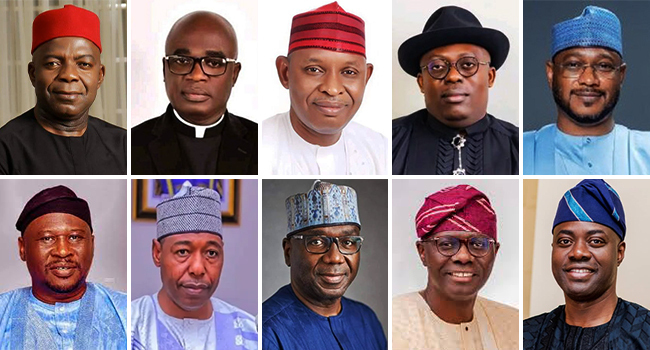At the 140th meeting of the National Economic Council (NEC), chaired by Vice President Kashim Shettima, sixteen state governors submitted reports expressing their support for the establishment of state police.
These reports, along with recommendations for constitutional changes to allow for the creation of state police, were presented at the meeting held at the Aso Rock Villa, Abuja, on Thursday.
Stanley Nkwocha, Special Adviser to the Vice President on Media and Communications, confirmed the submission of the reports in a statement titled, ‘NEC endorses take-off of $617M i-DICE programme across states.’
According to Nkwocha, the NEC is still awaiting reports from 20 states but expressed confidence that others would lend their support to the initiative.
NEC, established by the provisions of the 1999 Constitution (as amended), consists of the 36 state governors, the Governor of the Central Bank, and other co-opted government officials. It convenes monthly to advise the President on economic affairs and coordination efforts among various government entities.
During Thursday’s meeting, the Secretary to the NEC, Mr. Nebeolisa Anako, presented submissions by states on the state policing initiative.
Reports were received from 16 states advocating for the establishment of state police, while 20 states are yet to submit their reports. All states voiced their support for state police, citing reasons such as the need for constitutional changes and restructuring of the current policing system.
Although specific states were not disclosed, Nkwocha assured that the total number of supportive states would be presented at the next NEC meeting, as compilation is ongoing.
This development follows recent resolutions by the Federal and state governments on February 16, 2024, to devise strategies for implementing state police to address the nation’s security challenges.
Nigeria has faced a series of abductions, bandit attacks, and other violent crimes, prompting calls for the establishment of a multi-level policing system, including state police. Notably, bandits abducted 495 individuals in Kaduna, Sokoto, and Borno states, highlighting the urgent need for enhanced security measures.
On February 20, a bill proposing the creation of state police passed the second reading at the House of Representatives, garnering support from lawmakers who prioritise addressing security challenges over concerns of political victimisation.
The Presidency has endorsed the creation of state police outfits and forest guards, emphasising the crucial role of governors in ensuring the success of these initiatives. Additionally, efforts to reopen the Nigeria-Niger border aim to curb the influx of illegal arms fueling insecurity, stemming from conflicts in Libya.
The Nigeria Governors’ Forum has also underscored the importance of incorporating state policing in the ongoing constitutional amendment process to address fundamental flaws in the national security framework.
The debate surrounding the establishment of state police revolves around decentralising law enforcement to better address region-specific security threats while balancing concerns over potential abuse of power and implications for national unity.



